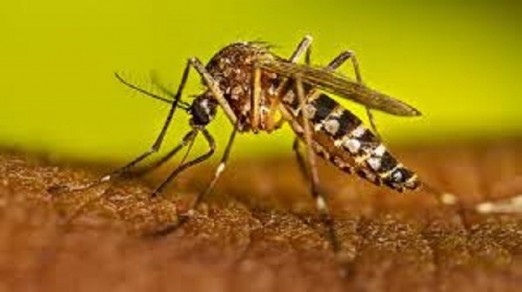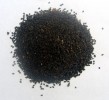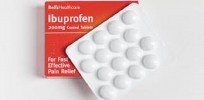Dengue cases more than doubled in a year

February 26,Kathmandu.According to the World Health Organization (WHO), there has been a huge increase in dengue cases in North and South America. Here, a total of 41 lakh cases of dengue were reported in 2023, while in 2024 it increased to more than 1 crore 60 lakh.
According to the Centers for Disease Control and Prevention, more than 14 million dengue cases were registered worldwide in 2024 and more than 10,000 people died of these. However, the actual number of dengue cases worldwide is much higher than the number of registered cases, because many people do not go to the hospital for treatment. It is estimated that about 400 million people are infected with dengue every year worldwide.
According to a report from Philippines and Puerto Rico published in the science journal 'Nature', cases of dengue also increase with the increase in temperature. According to the Indian Meteorological Department (IMD), the temperature in India has increased by 5-7 degrees Celsius in the last 10-15 years. This means that the risk of dengue is increasing in India too.
1 lakh 86 thousand dengue cases in India
According to the National Vector Borne Disease Control Center (NCVBDC), a total of more than 1 lakh 86 thousand cases of dengue were registered in India till October 31 in the year 2024. Whereas, 160 people died out of these. Dengue cases have increased in India in the last few years. However, very few cases were registered in the year 2020. The reason for this is that there was an outbreak of Kovid in India at that time. During this time, cases of most diseases were registered less.
What is dengue?
Dengue is a viral infection caused by the dengue virus. It spreads through the bite of an infected Aedes mosquito.
What are the symptoms of dengue?
Symptoms of dengue usually appear 3-10 days after infection. It first starts with high fever along with headache.
Dengue fever is also called break bone fever because it causes severe pain in muscles, head and joints along with fever. Red rashes on the body along with fever are a major symptom of this.
How does dengue spread?
Dengue is a vector borne disease. The Aedes mosquitoes that spread it are more active during the day. They are especially active in the morning and evening. If a person is infected with dengue and an Aedes mosquito bites him, this mosquito becomes infected. Then when this infected mosquito bites another person, he also becomes infected.
What is the treatment for dengue?
There is no specific treatment for dengue. There is no antiviral drug available for it. Its treatment includes medication to reduce symptoms of fever and pain and care. Most people recover from this.
Dr. Ankit Patel says that in some cases its symptoms can be severe. It is called severe dengue. In medical language it is also called dengue shock syndrome (DSS) or dengue hemorrhagic fever (DHF). In this, the number of platelets and white blood cells decreases significantly. Also, bleeding may occur from the nose, gums or stool. In such a condition, if timely treatment is not received, the patient may die. If such symptoms are seen, take the patient to the hospital immediately.
How to avoid dengue?
Dengue cases usually increase during monsoon in India. However, in summers, Aedes mosquitoes can also breed in the water stored in coolers and spread the infection. Therefore, keep changing the water in the cooler from time to time.
Apart from this, do not let water collect in pots, buckets, old tyres or corners of the roof around the house. Apart from this, definitely use a mosquito net before sleeping.
Some common questions and answers related to dengue
Can dengue spread from one person to another?
No, dengue infection does not spread from one person to another. It spreads only through the bite of an infected Aedes mosquito. Dengue does not spread by coughing, sneezing or touching an infected person.
If there is no medicine for dengue, then what things should be kept in mind during treatment?
There is no specific medicine for dengue virus. Therefore, medicines are given to reduce fever and muscle pain. However, in some cases the symptoms can be severe. Therefore, no medicine should be taken without the advice of a doctor.
Regular monitoring of platelets is very important during the treatment of dengue because platelets in the blood may decrease due to dengue fever. Platelet count less than 40 thousand is a danger sign. If the number is very low, bleeding may start and the patient may die. On admission to the hospital for dengue, platelet count is checked twice a day. If the number is less than 40 thousand, platelets are immediately transfused.
Therefore, if someone is admitted in the hospital for dengue, then arrange for blood donors in advance. It may be needed at any time.
Which tests are done to detect dengue?
Usually doctors do a blood test to confirm dengue infection. In the initial days of infection, NS1 antigen or RT-PCR tests are done. If more than 5 days have passed since the infection, then IgM and IgG antibody tests are done. In this, it is ascertained how much damage has been caused to the immune system due to dengue virus infection. Apart from this, platelet count is also detected through CBC test.
What should one eat during dengue to recover quickly?
Coconut water, seasonal fruits, soup and light food can help in increasing platelets in case of dengue. During this time, you can eat fruits like orange, kiwi and lemon. This increases immunity.
Papaya leaves are also beneficial. They contain acetogenin, which increases platelets rapidly. You can also drink lemonade, coconut water and buttermilk or lassi. This also keeps the body hydrated.
Share this with your friends:
प्रत्येक महिला पुरुषभन्दा कमजोर छैनन् : कमला भासिन
 नरेश ज्ञवाली ►
भदौ २७, काठमाडौं। दक्षिण एसियामा लैङ्गिक समानता, शिक्षा, गरिबी निवारण, मानवअधिकार र शान्तिका...
नरेश ज्ञवाली ►
भदौ २७, काठमाडौं। दक्षिण एसियामा लैङ्गिक समानता, शिक्षा, गरिबी निवारण, मानवअधिकार र शान्तिका...
पुरुष कलमले पूर्ण नारीलाई लेख्न सक्दैन
 काठमाडौं। मान्छेहरू कडा भएर बोलेको भन्दा नरम भएर बोलेको मनपर्छ । खरा कुराभन्दा नरम, सरस र सलिल कुराहरू मनपर्छ । तर...
काठमाडौं। मान्छेहरू कडा भएर बोलेको भन्दा नरम भएर बोलेको मनपर्छ । खरा कुराभन्दा नरम, सरस र सलिल कुराहरू मनपर्छ । तर...
कालो तिलले कम्मर दुखेको र अनुहारमा भएको पोतोको उपचार गर्छ
 काठमाडौं । कालो तिल अथवा तिलबाट प्राप्त हुने बिऊ तेल उत्पादनको लागि प्रयोग गरिन्छ । अनुहारमा चायाँ, पोतो वा दाग,...
काठमाडौं । कालो तिल अथवा तिलबाट प्राप्त हुने बिऊ तेल उत्पादनको लागि प्रयोग गरिन्छ । अनुहारमा चायाँ, पोतो वा दाग,...
दुबईमा पहिलो पटक नेपाली कल्चरल पहिरनको फेसन शो सम्पन्न
 काठमाडौं। गत माघ २८ गते दुबईमा नेपाली कल्चरल पहिरनको फेसन शो पहिलो पटक फेसन फ्युजन २०१७ सम्पन्न भयो । एनआरएन...
काठमाडौं। गत माघ २८ गते दुबईमा नेपाली कल्चरल पहिरनको फेसन शो पहिलो पटक फेसन फ्युजन २०१७ सम्पन्न भयो । एनआरएन...
उमेर अनुसारको हुनुपर्छ खान्की, अनि मात्र मानिस स्वस्थ रहन्छ
 काठमाडौं। पोषणको आवश्यकता उमेरअनुसार परिवर्तन हुन्छ । उमेरको हरेक अवस्थामा स्वयंलाई स्वस्थ राख्न शरीरलाई...
काठमाडौं। पोषणको आवश्यकता उमेरअनुसार परिवर्तन हुन्छ । उमेरको हरेक अवस्थामा स्वयंलाई स्वस्थ राख्न शरीरलाई...
यी भोजन खाए छाला सुन्दर हुन्छ !
 काठमाडौं। स्ट्रबेरी : यो भिटामिन सीले भरपुर हुन्छ । भिटामन सीले छालालाई चाउरीबाट जोगाएर सधैं जवान राख्न मद्दत...
काठमाडौं। स्ट्रबेरी : यो भिटामिन सीले भरपुर हुन्छ । भिटामन सीले छालालाई चाउरीबाट जोगाएर सधैं जवान राख्न मद्दत...
मुलुकका सम्मानित पदमा महिलाको उपस्थिति, सबैका लागि आशाको ढोका उघारे
 काठमाडौं। अहिले नेपालका तीनवटै अंगका प्रमुख महिला भएकाले नेपाली राजनीतिक क्षेत्रमा मात्र नभएर सामाजिक...
काठमाडौं। अहिले नेपालका तीनवटै अंगका प्रमुख महिला भएकाले नेपाली राजनीतिक क्षेत्रमा मात्र नभएर सामाजिक...
लोग्नेमान्छेको जात केटी देखेपछि.....
 काठमाडौं । शान्ताको विवाह भएको पाँच वर्ष बितिसक्दा पनि छोराछोरी भएनन् बरु उनलाई एकाएक ब्लड क्यान्सर भयो । समयले...
काठमाडौं । शान्ताको विवाह भएको पाँच वर्ष बितिसक्दा पनि छोराछोरी भएनन् बरु उनलाई एकाएक ब्लड क्यान्सर भयो । समयले...
मनोसामाजिक समस्या के हो?
 साउन ११, काठमाडौं । मनोसामाजिक समस्या भन्नाले मन र समाज वीच हुने समस्या हो । यो जो कोही व्यक्तिलाई पनि हुन सक्छ ।...
साउन ११, काठमाडौं । मनोसामाजिक समस्या भन्नाले मन र समाज वीच हुने समस्या हो । यो जो कोही व्यक्तिलाई पनि हुन सक्छ ।...
महिलाको दोस्रो विवाहको कुरा सुन्दा पढेलेखेकैले अनुहार बिगार्छन्
 काठमाडौं। दोस्रो विवाहबारे मैले नसोचेको, नचाहेको होइन । तर, म मेरा आत्मीयसँग फेरि विवाह गर्नेबारे कुरा गर्छु,...
काठमाडौं। दोस्रो विवाहबारे मैले नसोचेको, नचाहेको होइन । तर, म मेरा आत्मीयसँग फेरि विवाह गर्नेबारे कुरा गर्छु,...










